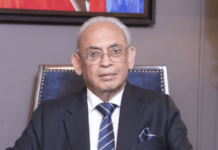Click on https://bit.ly/komal202 if the above video does not autoplay.
Ever since the names of A-list actors like Deepika Padukone, Shraddha Kapoor, Rakul Preet Singh and Sara Ali Khan have cropped up in the drugs investigations which started after the Central Bureau of Investigation (CBI) began to probe the Sushant Singh Rajput death case, there have been a whole lot of stories doing the rounds of the media that the stardom of these three leading ladies is in danger. Is it really on the verge of vanishing into thin air?
Let’s analyse.
Rekha, a top actress in her times, married Mukesh Aggarwal in 1990. The marriage was short-lived as Mukesh ended his life in October the same year. Although there was no social media back then, the media was strong, very strong. Journalists in the 1990s behaved like journalists rather than wannabe entertainers on national television. So, the press spoke about the likely fallout of the suicide on Rekha’s career, and about how the nation had, in one go, turned against Rekha, accusing her of driving the husband to suicide. A filmmaker like Subhash Ghai and an actor like Anupam Kher were quoted to have said that Rekha’s career was doomed because of the suicide. Producer K.C. Bokadia had just completed a 5-day shooting schedule of Phool Bane Angaray with Rekha in the lead role, when the news of Aggarwal’s suicide rocked the nation. With the public sentiment being against “national vamp” Rekha, she herself volunteered to leave the film as it was a heroine-oriented subject. Incidentally, in the film, Rekha’s husband (played by Rajinikanth) is killed, after which the widow seeks revenge. Not swayed by public opinion, Bokadia stuck to his guns and completed the film with Rekha herself as the heroine, in a single schedule. His logic was that had the suicide been committed after the film was half-complete, he would not have shelved the film or reshot it with another heroine, so why would he do so now. The film went on to become a hit when he released it in June 1991. No amount of negative publicity which Rekha had got for her husband’s suicide came into play when Phool Bane Angaray hit the screens eight months later.
The examples of Salman Khan and Sanjay Dutt are also indicative of how the public does not mix the personal lives of stars with their professional work. The second innings of Salman Khan (Bajrangi Bhaijaan, Sultan, Ek Tha Tiger, Tiger Zinda Hai, Kick, Dabangg, Bodyguard, Mujhse Shaadi Karogi, No Entry, Ready, Prem Ratan Dhan Payo) is far bigger than his first innings (Hum Aapke Hain Koun..!, Maine Pyar Kiya, Karan Arjun, Sanam Bewafa, Saajan, Judwaa) but the point to be noted is that the second innings was being played by the maverick star even while he was fighting two court cases, one of which is now over. Did his court appearances or arrests have a bearing on the box-office performance of his films? Not really. Ditto for Sanjay Dutt who had a TADA case registered against him, no less. Yet, his films like Khal-nayak (released in the same year as his first arrest), Munna Bhai M.B.B.S., Lage Raho Munna Bhai and Agneepath scored extremely well at the turnstiles.
The logic is simple: people go to the cinemas to watch their favourite stars but they also go to watch stories. Five minutes through the film, they get sucked into the story and seem to watch the characters more than the stars. Had they only been watching their idols — the stars — every film of any given star would have performed exactly like his/her earlier film. But the difference happens because the stories are different, because the characters those stars portray are different in each film.
The brouhaha over the summoning of Deepika Padukone and other top actresses of the day may adversely affect their endorsement assignments but it is unlikely to have any adverse impact on the box-office performance of their starrers. Since stars are signed for endorsements by corporate houses, mostly public limited companies, they are answerable to their shareholders. Besides, they have their self-regulation codes to follow when they bring a celebrity on board for endorsing their product because the celebrity is selling the product/brand to the public. In a film, the star is not selling a product. He is telling a story.
Everyone wants to see entertaining stuff. Once a film is certified by the public as being entertaining, people rush to the cinemas to watch it. Then it doesn’t matter whether the star is tainted with a court case or has a personal problem in his life. For the three hours in the dark of the cinema hall, it is the public, the story, the characters, and then, the stars.




























